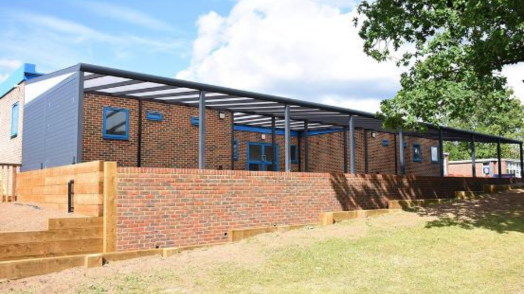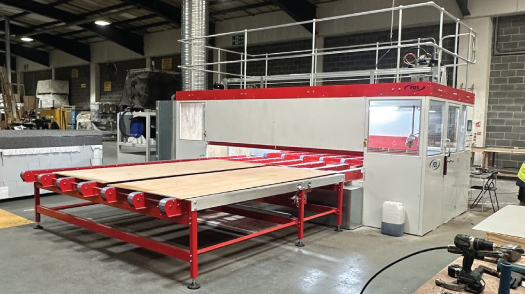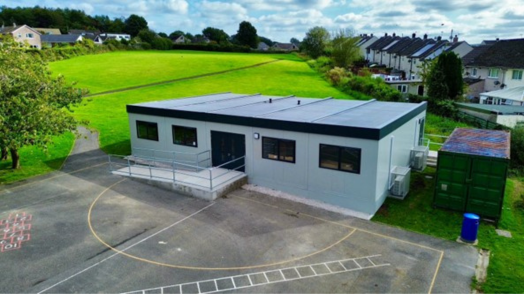Contact our friendly team for more information on our full range of buildings and how to start the process of hiring or buying a modular building for your business. Our expert team is always available to give advice, guidance or support.
Published: 20 November 2025 in Building Types
How Modular Buildings Are Transforming Healthcare Infrastructure

Healthcare organisations face constant pressure to provide safe and reliable spaces while managing growing demand and limited budgets. Many estates contain ageing facilities that no longer support modern standards of care, which creates the need for construction methods that deliver new buildings quickly, efficiently, and with minimal disruption. Modular construction has become a practical solution for healthcare providers that need dependable results within tight timeframes.
Faster Delivery of Healthcare Facilities
Healthcare projects must often be completed within short time periods. Hospitals may require new wards to manage seasonal pressures. Community services may need additional clinical rooms. Clinics may need temporary spaces during refurbishment work. Modular construction supports these needs through off-site manufacturing, which allows groundworks and building production to progress at the same time. This greatly reduces delays and helps providers increase capacity sooner.
The nature of off-site production also limits disruption to operational sites. Most of the construction activity takes place away from patients, staff, and visitors. This creates safer and quieter surroundings, which is essential when building near acute wards or sensitive departments.
Better Control of Project Costs
Public and private healthcare providers often need strict cost certainty before approving any development. Modular construction helps achieve this through controlled factory processes that produce consistent results and more accurate estimates. The approach also reduces waste and avoids many of the delays that increase costs on traditional sites.
The completed buildings offer long-term value because they are designed to meet the same standards as permanent healthcare structures. They are durable, energy efficient, and straightforward to maintain. Since modules can be adapted or reused, the investment continues to hold its value as future needs change.
Flexible Spaces That Adapt to Clinical Demand
Healthcare requirements rarely remain static. A department may need more examination rooms. A diagnostic service may grow. A temporary building may need to become a permanent part of the estate. Modular construction supports these shifts because the structures can expand, reduce, or be reconfigured in line with new priorities.
A small clinic can later develop into a larger facility. A short-term decant building can become an administration hub. A temporary ward can turn into training space. This adaptability helps estates teams respond to changes in demand without the long delays associated with traditional construction.
Supporting Sustainability Across Healthcare Estates
Sustainability has become a central aim across the healthcare sector. Modular construction supports this aim through efficient production methods that reduce waste and cut traffic movements around hospitals and clinics. Factory construction also allows greater control over energy use and quality.
Buildings can be designed with strong insulation, energy-saving systems, and effective ventilation. The ability to reuse or move modules reduces the need for demolition, which limits environmental impact and supports more responsible use of materials.
Built for Clinical Safety and Compliance
Healthcare buildings must meet high clinical standards for safety, hygiene, accessibility, and comfort. Modular construction supports these expectations through repeated quality checks during production, which helps ensure that every section of the building reaches the required standard before it leaves the factory.
Springfield Modular develops healthcare buildings that support efficient clinical flow and provide comfortable, welcoming environments for patients and staff. Each project is designed in line with the specific needs of the provider and the relevant technical guidance for healthcare construction.
A Dependable Approach for Modern Healthcare Estates
Modular buildings are now an essential part of healthcare infrastructure. They provide reliable performance, shorter construction times, and improved flexibility, which helps organisations create better spaces for care delivery.
Springfield Modular has extensive experience in working with hospitals, clinics, and community services throughout the UK. Our team supports every stage of the process from early discussions to installation, ensuring each facility meets the provider’s needs both now and in the future.
Interested in a modular building?
If you would like to discuss your next healthcare project, the Springfield team is ready to help you explore the most suitable modular options.








